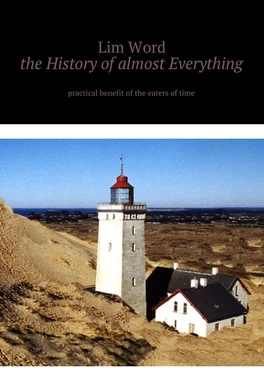It should be noted, friends, the French officers at this time, no doubt, are the best officers of the World. Their origin is the working class, the bourgeoisie, or even the petty nobility. These soldiers are able not only to destroy, but also to create. They create – Europe, which is completely different from all that was on this place in the Middle Ages. They have something to offer – Italy, Spain, Poland. You yourself know how dramatically, almost beyond recognition, people who have passed at least a small path to success are changing. A few more years will pass, and their spirit will change. The military will acquire arrogance, ambition, disdain for “ordinary people”. It is exactly the same thing, parallel, that happens to Napoleon Bonaparte himself. In this, already unattractive, French officers will enter Russia, instead of destroying slavery, they will plunder the Orthodox churches and, unfortunately, in less than six months, almost all will die.
The influence of Russia sharply increases in the liberated region. Fearing this, the Allies demand that the troops immediately move to Switzerland and, using this country as a foothold, invade France itself. Suvorov is forced to obey, although with some delay; left by him, in practice, despite the will of the Austrians garrisons, block the movement of French troops (still remaining in Genoa).
There is a strange castling; Austrian troops in Switzerland are urgently sent to Holland, to join with the Anglo-Russian landing force. Their place, in the country not yet liberated from the French, should be occupied by the Russian-Austrian national army. September 21, 1799, Suvorov’s troops begin the Swiss campaign – including the famous crossing over the Alps. Having overcome the path with incredible difficulties, having saved about 20 thousand soldiers, in the Swiss valley surrounded by mountains, the commander learns that the 60,000-strong army of Rimsky-Korsakov is defeated by the 75,000-strong corps of Massena. With a breakthrough from the Mutenskaya Valley, the 15,000-strong French detachment is half destroyed, the Russian troops are losing 700 people, Massena himself is barely escaping, leaving the epaulette in the hands of a certain brave non-commissioned officer. There is another difficult transition: 200 soldiers are killed, half of almost 3 thousand prisoners, the army is also deprived of all its artillery. At the end of September, troops leave for the valley, where people receive warmth, bread, meat and portions of alcohol. There is a connection with the half-reduced body of Rimsky-Korsakov. The army withdraws to the allied Bavaria, where Suvorov, without reacting to the proposals of the Austrian Emperor Franz the First (whom, together with his commander, Archduke Karl considers a traitor) to continue the fighting, waiting for the courier from Paul the First. Russian troops responded to Russia, Suvorov is waning to his estate Kobrin Klyuch (present-day Belarus), for a well-deserved rest. The commander is still vigorous, but the closest adviser to Pavel the First, Count Palen, slanders Suvorov, accusing almost of preparing the insurrection; in St. Petersburg an honest and decisive Generalissimo can prevent a real revolution.
The Anglo-Russian landing in Holland (on English ships) is landed in June 1799. The total number of about 45 thousand, of which 18 thousand – the Russian corps. Soldiers get stuck in numerous canals, spills, suffer from deprivation from the autumn weather. The number of supporters of the restoration of the monarchy in the Netherlands, it turns out, is not great. French troops have strong rear, popular support, excellent supply. Eventually, having lost about 7 thousand people, in hostilities and from diseases, the Allied army is evacuated by the sea. Benefit from the expedition gets only the UK: it manages to capture almost the entire Dutch fleet.
In August 1798, the united Russian-Turkish squadron under the command of Ushakov besieged the island of Corfu, captured by the French (now Greek). The garrison capitulates, the fleet commander is made into admirals. In this area, under the protectorate of Turkey and Russia, the Republic of the Seven Islands is being established, for several years becoming the main base of the Russian Mediterranean squadron. The fleet participates in the siege of Genoa, then relocates to Malta, and halfway receives the order of Paul the First to return to Sevastopol (Austria concludes a separate truce). Human losses of 400 people, all ships are saved.
So, Paul is dissatisfied with the fact that, located in Sicily Malta, the possession of the most ancient knightly order of the Hospitallers, the British not only cleared Napoleon’s troops, but also joined the UK. Russia itself was going to declare a protectorate over this island, with the prospect of becoming one of the provinces, and, at the same time, the erection of a large naval base here. Moreover, having received the regalia of the great master of the Maltese (Enkih French, as a rule) knights, Paul really considers himself so, considering it his personal duty to use all the resources of the Russian Empire for the liberation of the sacred island.
Knights expelled by Napoleon from their places of refuge, find shelter in St. Petersburg, have treasury, office, etc. in the Vorontsov Palace. However, they do not go deep into politics, do not go deep into politics, consider themselves above the subtleties of palace intrigues, and allow his nominal commander to die. Among their later achievements is the establishment of a prestigious Corps of Pages. Where the teaching of not only Catholics and Orthodox (Orthodox) is allowed.
In November 1801 Dagestan (Avar) Ummah Khan decides to support the Georgian prince Alexander Bagrationi in his struggle for the Georgian (Karli-Kakheti) throne. The legitimate monarch – George the Twelfth nominates another heir. Against the 14,000 people of the Avar and Georgian squad, there are: a Russian detachment of General Ivan Lazarev, numbering 1,500 soldiers and 6 guns, and about 7,000 Georgian fighters. The battle takes place on the outskirts of Tiflis, near the Iori River. Highlanders enter the battle without the command of Ummah Khan, the Russian-Georgian troops crowd, but fall under artillery fire and suffer serious losses. The battle ceases with the onset of the night, after which Ummah Khan gives the order to retreat.
Impressed by this battle, also afraid of the scale campaign that is being prepared by Persia, Georgii Twelfth expresses a desire to join Georgia as an autonomy with special rights. Emperor Paul the First, December 22, 1800 signs the appropriate manifesto. Further, the monarch asserts the kingdom of successor George, King David Twelfth. Later, David becomes Governor-General, with the title of king, and the Carly-Kakhetian kingdom, turning into a simple Russian province, is deprived of autonomy. At the beginning of the reign of Alexander the First, (1801), the Georgian king (who had entered into a struggle with potential dignitaries against St. Petersburg dignitaries) was suspended from power, General Ivan Lazarev, commander of Russian troops, became its manager.
The self-name of Georgians is kartveli, in the East they were called “gurj”, from this in Russian “gurzin” was formed and, with the rearrangement of sounds, the modern “Georgians”.
…Plans for the Indian campaign (with the British, former French colonial possessions) combined with Napoleon are recognized by most historians as a hoax, but the very fact that the rumor about him seemed true to contemporaries speaks of a turn of the foreign policy vector. With regard to Britain, Russia now maintains its armed neutrality, while others, seeing this, are imposing an embargo on trade with the “mistress of the seas,” and close their ports for it.
But, the British do not hesitate and, in 1801, through their ambassador, Winstvorte is handed over to participants in the unfolding conspiracy, in most of the masons who promoted each other to key positions, 2 million rubles. Yes, we can say that Paul favored the soldiers, but now there is not a single private soldier with him. But there is Count Palen, the Baltic German, the closest secret adviser and, in combination, the main coordinator of the coup.
Читать дальше












